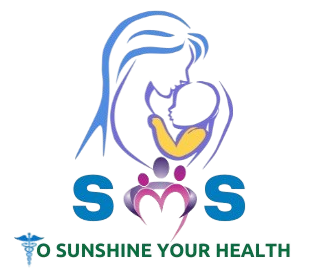Fertility Medications
Fertility Medications
Fertility medications are used to help individuals and couples who are struggling with infertility or difficulty conceiving. These medications can help regulate ovulation, improve sperm quality, or correct hormonal imbalances to increase the chances of conception. Fertility treatments vary depending on the underlying cause of infertility, and they are typically prescribed after an evaluation by a healthcare provider.
Types of Fertility Medications
- Ovulation Stimulants
These medications are used to help women who do not ovulate regularly or at all. They stimulate the ovaries to release eggs.- Clomiphene Citrate (Clomid)
- How it works: Clomid is the most commonly prescribed medication for ovulation induction. It works by blocking estrogen receptors in the brain, which stimulates the release of hormones that encourage ovulation.
- Usage: Typically taken for 5 days early in the menstrual cycle.
- Effectiveness: Around 70% of women will ovulate with Clomid, and about 30-40% will become pregnant within the first few cycles.
- Letrozole (Femara)
- How it works: Letrozole is used to stimulate ovulation by reducing estrogen levels, which in turn triggers the release of follicle-stimulating hormone (FSH) to stimulate egg production.
- Usage: Usually taken for 5 days early in the menstrual cycle.
- Effectiveness: Letrozole is often used for women with conditions like polycystic ovary syndrome (PCOS) and is considered as effective as Clomid but with a lower risk of multiples.
- Gonadotropins (FSH, LH)
- How they work: Gonadotropins are injectable hormones (such as FSH and LH) that directly stimulate the ovaries to produce eggs. They are often used when Clomid or Letrozole does not work.
- Usage: Administered by injection, usually under the skin, during the early part of the menstrual cycle.
- Effectiveness: Gonadotropins are very effective in stimulating ovulation, but they carry a higher risk of multiple pregnancies (twins or more).
- Clomiphene Citrate (Clomid)
- Human Chorionic Gonadotropin (hCG)
- How it works: hCG is a hormone that is often used to trigger ovulation after the ovaries have been stimulated by other fertility medications like gonadotropins or Clomid. It mimics the natural LH surge that triggers ovulation.
- Usage: hCG is typically given as an injection about 24 to 36 hours before the planned time for egg retrieval or intercourse.
- Effectiveness: It helps to ensure that ovulation occurs at the right time for conception, either with timed intercourse or intrauterine insemination (IUI).
- Progesterone Supplements
- How it works: Progesterone is a hormone that helps prepare the uterine lining (endometrium) to receive and support a fertilized egg. It is often prescribed after ovulation or IVF (in vitro fertilization) to support early pregnancy.
- Usage: Can be administered via oral pills, vaginal suppositories, or injections.
- Effectiveness: Progesterone is used to enhance the chances of a successful pregnancy after ovulation or IVF, and may be continued until the pregnancy is confirmed.
- Metformin
- How it works: Metformin is an oral medication commonly used to treat type 2 diabetes, but it is also used in women with PCOS to regulate insulin levels and improve ovulation.
- Usage: Taken as a daily pill, it is often combined with other fertility treatments like Clomid.
- Effectiveness: Metformin is particularly helpful in women with insulin resistance, which is common in PCOS, and can help improve ovulation and fertility.
- Dopamine Agonists (e.g., Bromocriptine, Cabergoline)
- How they work: These medications are used to treat women with high levels of the hormone prolactin, which can interfere with ovulation. Prolactin is a hormone that stimulates milk production, and elevated levels can suppress regular ovulation.
- Usage: These are typically taken orally and help lower prolactin levels to allow for normal ovulation.
- Effectiveness: They are effective in treating prolactin-related infertility, restoring normal ovulatory cycles in many women.
Other Fertility Treatment Options
- Intrauterine Insemination (IUI): Involves placing sperm directly into the uterus around the time of ovulation. It is often combined with ovulation-inducing medications like Clomid or gonadotropins for better success.
- In Vitro Fertilization (IVF): IVF involves stimulating the ovaries to produce multiple eggs, retrieving the eggs, fertilizing them in a laboratory, and then implanting one or more embryos into the uterus. Hormonal medications are used to support egg production, ovulation, and the preparation of the uterine lining for embryo transfer.
Risks and Considerations
While fertility medications can increase the chances of conception, there are potential risks and side effects:
- Multiple Pregnancies: Some fertility drugs, especially gonadotropins, increase the risk of twins or higher-order multiples (triplets or more).
- Ovarian Hyperstimulation Syndrome (OHSS): This is a potentially serious condition that can occur with the use of injectable hormones like gonadotropins. It can cause swollen ovaries, fluid buildup in the abdomen, and other complications.
- Side Effects: Common side effects of fertility medications can include mood swings, bloating, hot flashes, headaches, and nausea.
Conclusion
Fertility medications can be a key part of helping individuals and couples achieve pregnancy, especially for those experiencing ovulatory problems or infertility. However, they should be used under the guidance of a healthcare provider or fertility specialist who can tailor the treatment plan to the individual’s needs and monitor for any complications. It’s also essential to discuss the potential risks, benefits, and success rates of different fertility treatments with a healthcare provider to make informed decisions.
Need a Solution?
For unplanned pregnancy plans Contact Us

